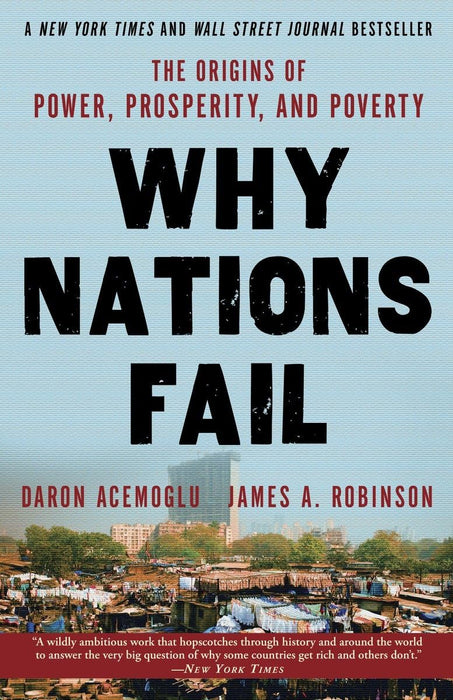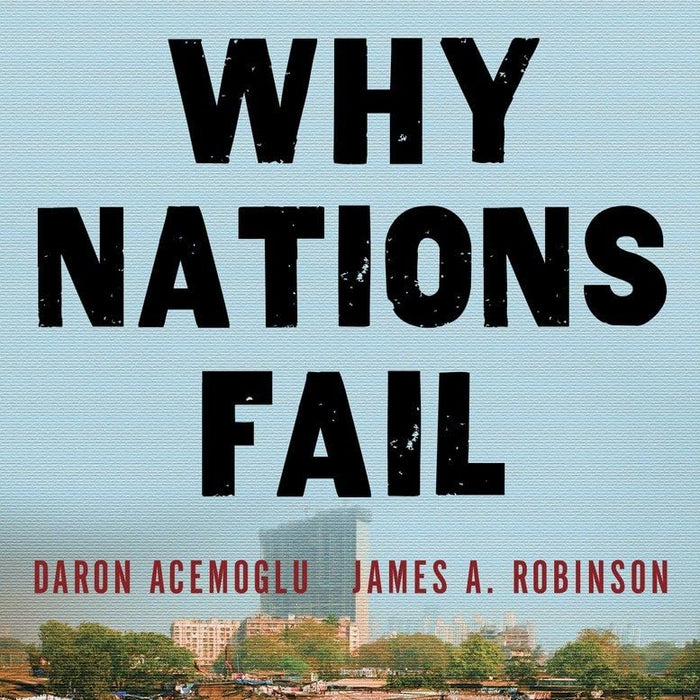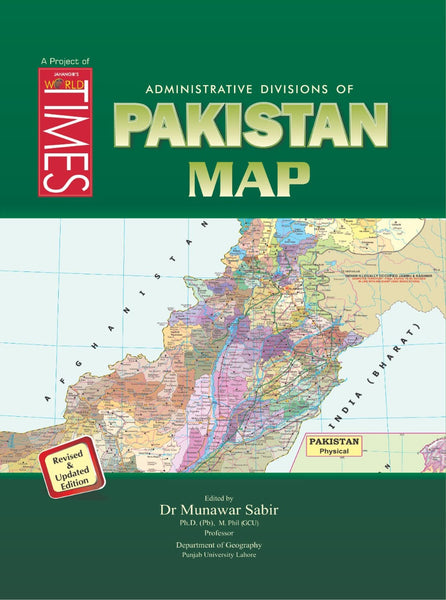Why Nations Fail by Daron Acemoglu (Author)
- Publisher: POLITICAL SCIENCE
- Availability: In Stock
- SKU: 31442
- Number of Pages: 544
Rs.400.00
Rs.550.00
Tags: best books , Best Price , Best Selling Books , Colonialism , Corruption and Inequality , Daron Acemoglu , Development Economics , Economic Development , Economic Growth , Economic Policies , Economic Systems , Economic Systems and Policies , Economic Systems and Wealth , Global Inequality , Global Politics , Global Wealth Disparities , Governance , Historical Inequality , Institutional Failure , Institutional Strength , Institutional Theory , Institutions and Prosperity , James A. Robinson , ONLINE BOOKS , Online Bookshop , Political Economy of Development , Political Institutions , Political Power , Power and Prosperity , Power Dynamics , Prosperity and Poverty , Resource Distribution , Social and Political Stability , Social Mobility , Social Structures , State and Markets , State Capacity , Structural Changes , The Origins of Power , Why Nations Fail
Why Nations Fail: The Origins of Power, Prosperity, and Poverty
Authors: Daron Acemoglu & James A. Robinson
Introduction
Why Nations Fail by Daron Acemoglu and James A. Robinson offers a groundbreaking analysis of the fundamental causes of political and economic disparities between nations. The book argues that the key to understanding why some nations thrive while others remain impoverished lies not in geography, culture, or ignorance, but in the quality of political and economic institutions. The authors build on a vast array of historical case studies to show that inclusive institutions—those that provide equal opportunities for individuals—are the key to prosperity, whereas extractive institutions—those that concentrate power and wealth in the hands of a few—lead to stagnation and poverty.
📖 Key Features
✅ Innovative Thesis:
-
The authors challenge conventional explanations of economic success and failure by emphasizing the role of political institutions in shaping economic outcomes.
-
They argue that inclusive political and economic institutions promote innovation, investment, and sustainable growth, while extractive institutions inhibit these processes.
✅ Historical Case Studies:
-
Why Nations Fail draws upon a variety of historical examples from around the world, from the fall of the Roman Empire to the rise of the United States, to illustrate the relationship between political institutions and economic success.
-
Case studies include countries like North and South Korea, Venezuela, and Botswana, offering a comparative perspective.
✅ Cross-Disciplinary Approach:
-
The authors blend economics, political science, history, and sociology to provide a comprehensive explanation of the origins of power, wealth, and poverty.
-
They argue that the development of institutions is shaped by both political choices and historical events, making this a multi-dimensional approach to understanding global inequality.
✅ Accessible Writing Style:
-
Despite the complex subject matter, Acemoglu and Robinson present their arguments clearly and engagingly, making the book accessible to both scholars and general readers.
-
The authors use vivid storytelling and straightforward explanations to illustrate their points, making complex economic and political concepts easier to grasp.
✅ Global Relevance:
-
Why Nations Fail provides a global perspective on the factors that contribute to national prosperity or failure, making it a relevant read for anyone interested in understanding global development issues.
-
The book encourages readers to think critically about the role of institutions in shaping national destinies.
🌟 Why This Book Stands Out
-
Challenging Conventional Wisdom:
The book refutes popular explanations for national differences in wealth, such as geographic location or culture, and instead points to political institutions as the primary cause of prosperity or poverty. -
Clear Argumentation:
Acemoglu and Robinson provide a coherent and compelling argument backed by empirical evidence and historical examples. -
Impactful and Thought-Provoking:
The book offers new insights into the role of institutions in shaping nations, making it a must-read for anyone interested in politics, economics, and global development. -
Rich with Examples:
The authors use a variety of case studies from history to present their thesis, making the book both informative and engaging.
🎯 Conclusion
Why Nations Fail is a thought-provoking exploration of the underlying causes of global inequality, emphasizing the importance of political institutions in shaping the economic future of nations. By shifting the focus from traditional factors such as geography and culture, the authors provide a new lens through which to view the success or failure of countries. Whether you’re a student of economics, political science, or simply someone interested in understanding why some nations thrive while others remain poor, this book is an essential read.

























